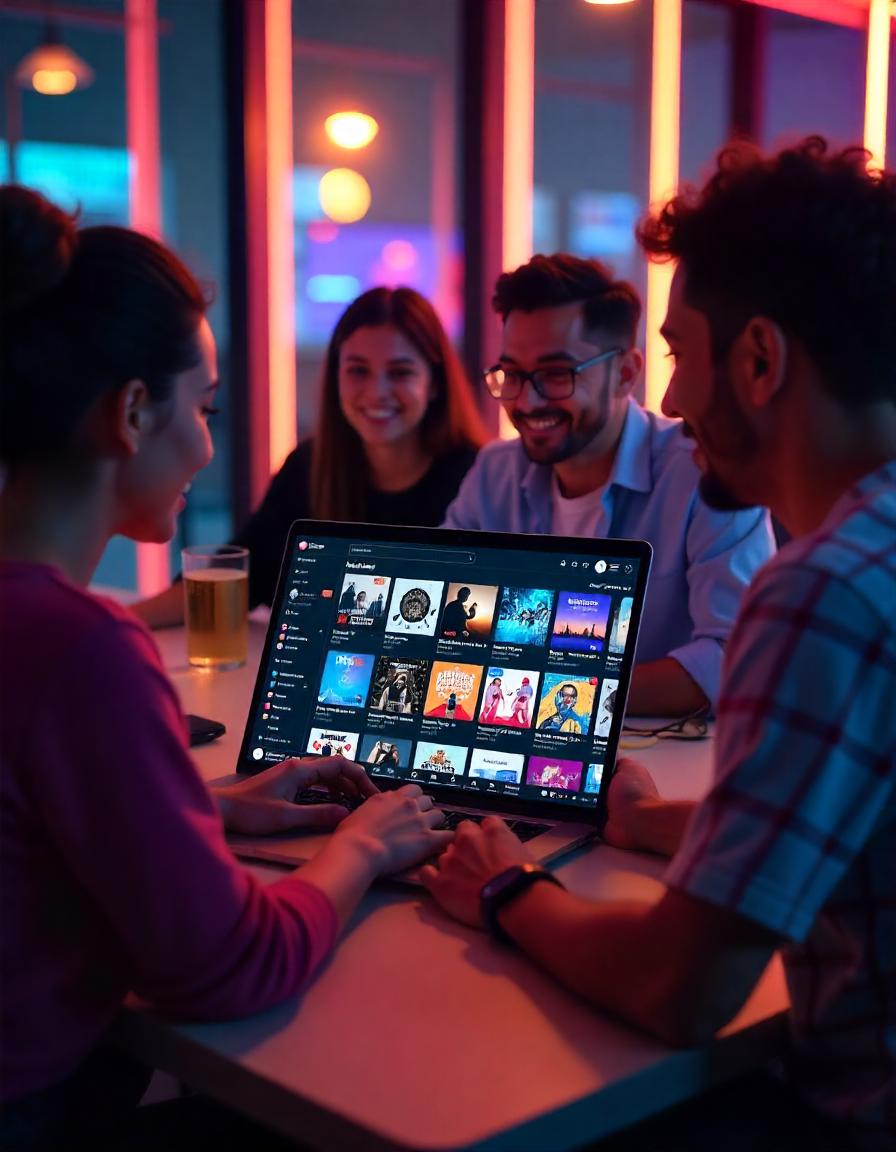How Blockchain Technology Can Help Musicians and Artists Globally
Blockchain technology has emerged as a revolutionary tool across various industries, and the creative sector is no exception. For musicians, visual artists, writers, and creators of all kinds, blockchain is not just a buzzword but a potential game-changer. This technology offers solutions to longstanding challenges in the art and music industries, such as intellectual property protection, revenue distribution, and audience engagement. Here's how blockchain technology can help musicians and artists worldwide.
1. Securing Intellectual Property Rights
One of the most significant challenges artists face is ensuring that their intellectual property (IP) is protected. Copyright infringement and unauthorized use of creative works are rampant in the digital age. Blockchain provides an immutable ledger where artists can register their works, effectively creating a timestamped proof of ownership.
For instance, a musician can upload their song to a blockchain platform, ensuring that it is time-stamped and linked to their identity. If a dispute arises about the song's ownership, the blockchain record serves as undeniable proof. This capability empowers artists to safeguard their creations without relying on traditional intermediaries, which are often costly and inefficient.
2. Fair and Transparent Revenue Distribution
The current system of revenue distribution in the music and art industries often leaves creators at the bottom of the financial chain. Middlemen such as record labels, distributors, and streaming platforms take substantial cuts of the revenue, leaving artists with a fraction of the profits.
Blockchain-based smart contracts can revolutionize this process. These self-executing contracts automate payment distribution based on pre-defined conditions. For example, a smart contract linked to a song on a streaming platform could instantly and transparently distribute revenue among all contributors, including musicians, producers, and lyricists. This ensures fair compensation and reduces the risk of delays or disputes.
3. Enabling Direct-to-Fan Engagement
Blockchain technology facilitates direct interaction between artists and their audiences, eliminating the need for intermediaries. Musicians and artists can sell their work directly to fans using blockchain-based marketplaces, ensuring they retain a larger share of the profits.
Non-Fungible Tokens (NFTs) are a prime example of this innovation. NFTs allow artists to sell unique digital assets, such as exclusive album releases, artwork, or limited-edition merchandise, directly to fans. These tokens can include special perks, such as backstage passes or meet-and-greet opportunities, fostering a closer connection between artists and their supporters.
4. Global Royalty Tracking
Tracking royalties across different platforms and territories is a complex and often opaque process. Artists frequently face issues with delayed or inaccurate royalty payments. Blockchain can streamline royalty management by providing a transparent and unified system for tracking usage and payments.
For example, whenever a song is played on a streaming platform or used in a commercial, the blockchain ledger can automatically record the event and trigger the corresponding royalty payment. This transparency reduces disputes and ensures that artists are paid promptly and fairly.
5. Crowdfunding and Financial Support
Securing funding for creative projects has always been a challenge for artists. Blockchain technology introduces new ways to raise capital through decentralized crowdfunding platforms. Artists can issue their own tokens or coins, allowing fans to invest in their work directly.
For example, a musician could launch a campaign to fund a new album. Fans who contribute receive tokens that can later be redeemed for exclusive content, merchandise, or even a share of the album’s revenue. This model not only provides financial support but also fosters a sense of community and shared ownership among fans.
6. Combatting Piracy and Unauthorized Distribution
Piracy and unauthorized distribution are persistent problems in the creative industries. Blockchain can help mitigate these issues by enabling artists to distribute their work securely and track its usage.
For instance, a visual artist could embed a unique digital watermark linked to a blockchain record in their artwork. This watermark ensures that the artwork's provenance and ownership can always be verified, even if it is shared or resold. Similarly, musicians can use blockchain platforms to distribute their music with built-in licensing terms, ensuring they retain control over how their work is used.
7. Empowering Independent Artists
For independent artists, navigating the complexities of the traditional creative industries can be daunting. Blockchain technology levels the playing field by providing tools that were previously accessible only to well-established artists with significant resources.
With blockchain, independent musicians can distribute their music directly to streaming platforms, sell NFTs, and manage their royalties without needing a record label. Visual artists can sell their work on decentralized marketplaces, bypassing galleries and auction houses. These opportunities empower artists to take control of their careers and build sustainable incomes.
8. Building Transparent and Trustworthy Ecosystems
The art and music industries often suffer from a lack of transparency, leading to mistrust among artists, managers, and other stakeholders. Blockchain’s decentralized nature ensures that all transactions and agreements are recorded on a public ledger, fostering accountability and trust.
For example, blockchain can be used to verify ticket authenticity for concerts and events, reducing fraud and ensuring fans get what they pay for. Similarly, artists can use blockchain-based platforms to collaborate with other creators, with all agreements and revenue splits transparently documented.
Conclusion
Blockchain technology has the potential to revolutionize the creative industries by addressing many of the challenges artists face today. From securing intellectual property and ensuring fair revenue distribution to enabling direct-to-fan engagement and combatting piracy, blockchain offers a host of benefits that can empower musicians and artists worldwide.
As this technology continues to evolve, it is essential for artists to explore and adopt blockchain tools to unlock new opportunities and redefine their relationship with their audience. By embracing blockchain, the creative community can build a more equitable, transparent, and sustainable future.




